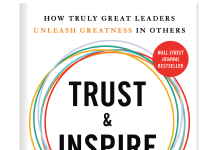It’s a bustling world out there, and workers in most industries have to keep up with the rapid advances in technology and new information that hit them at an unprecedented rate. The good news is that you don’t have to go back to school or college full-time to stay cool and current. Instead, you can opt for any one of a huge number of short educational or vocational courses to primp up your skills and resume.
Fill in the Gaps
Short courses—ranging from half a day to a few days—are ideal for filling in gaps in your knowledge and skills base. Providers such as The Knowledge Academy offer hundreds of short, sharp (in a good way) courses that help you catch up on anything you missed while you were busy earning a crust.
For example, extra courses on effective workplace communication, conflict resolution, or handy new IT skills will make you stand out to your bosses and HR people. What’s more, once you have these skills, you can take them to another employer or even another industry if you want to.
You Can Get Stale Without Realizing It
You’re great at your job; you know it inside out, right? Then, a new, younger person comes onto the team with lots of fancy ideas, and suddenly she’s the golden girl simply because she graduated a few years after you. You shouldn’t leave learning behind in the year you left college; you need to stay up to date. Short refresher courses can easily fit into your annual schedule to help you to keep up with them whippersnappers.
Try Out a New Career Direction
If you’re thinking of leaving your current industry or sector but not sure if the one you’re looking at is right for you, then a small taster or two may help you to decide. You’ll gain some insight as to the skills and knowledge you’ll need to enter into and make progress in your new field. You might find that what you learn helps you in your existing career even if you don’t decide to leave, and it’ll certainly add a bit of interest to your resume.
Speaking of that Resume…
If you’re ambitious and you already have a few post-university or college qualifications and certificates under your belt, don’t be shy with them!
Many people tend to see these extras as just that—extras. But they’re not add-ons or afterthoughts. They’re evidence of serious time and financial investments on your part, and they need to be maximized.
When you add your continuing education to your resume, don’t just tack it onto the bottom, underneath your macramé and yoga classes; put those courses and certifications right up where they belong—underneath your main degree or diploma, or your personal statement. Say to those hirers that you’re motivated and a self-starter, that you’re always looking to advance and better yourself. Because if you don’t, no one else will!




